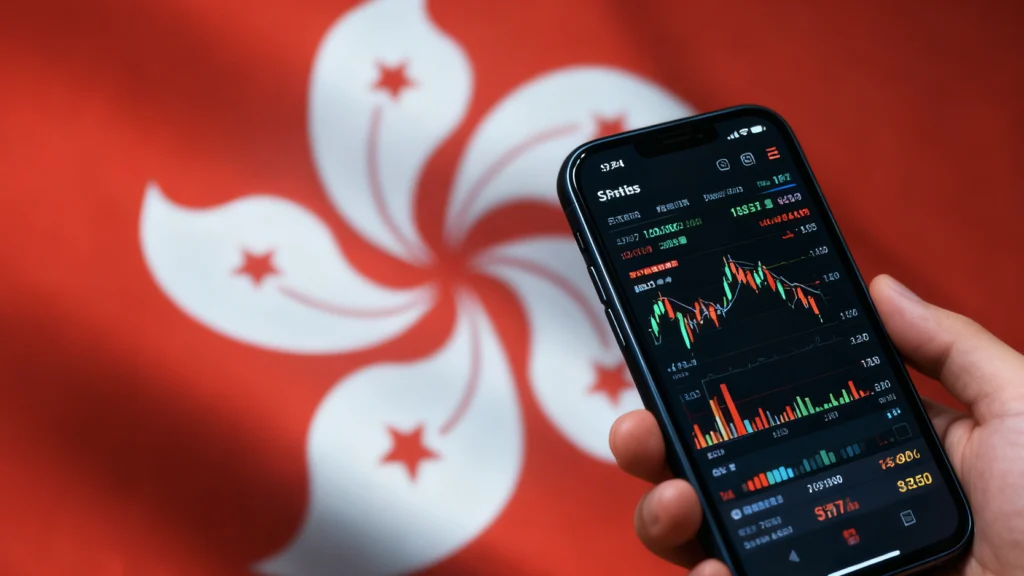Futures Commission Fees Guide: Fee Structure, Rebates & Savings

Complete Guide to Futures Commission Fees: Understand the Structure, Negotiation, and Rebates to Stop Overpaying!
Every time you open your futures statement and see the commission fees listed, have you ever felt a bit confused? You probably know that every trade comes with a cost, but you may only have a vague idea of what futures commission fees are, how they are structured, and why the amount sometimes varies. More importantly, many traders don’t realize that these fees are actually negotiable and that part of them can even be recovered through a futures commission rebate mechanism. This article will completely uncover the mystery behind futures commission fees, from basic structural explanations to advanced negotiation tips and cost-saving strategies, helping you make every trade a winning one from the very start.
What Are Futures Commission Fees? A Complete Breakdown of the 3 Core Components
In simple terms, futures commission fees are the service charges you pay to a futures broker for every futures trade you make. These fees are not a single item but are composed of three key parts. Understanding their differences is the first step to gaining negotiation leverage.
Exchange Fee: A Fixed, Non-Negotiable Charge
This is the fee paid to the futures exchange, such as the “Taiwan Futures Exchange” (TAIFEX). It is a fixed cost, no matter which broker you open an account with or which product you trade (such as TAIEX Futures or single-stock futures), the exchange fee remains exactly the same. It functions like the raw material cost of a product, and the broker merely collects it on behalf of the exchange. Therefore, this portion has no room for negotiation. The purpose of this fee is to support the exchange’s operations, system maintenance, and market supervision.
Clearing Fee: The Cost of Ensuring Contract Fulfillment
The clearinghouse acts as the guarantor between buyers and sellers in the futures market, ensuring that all trades are properly executed and default risks are minimized. To maintain this crucial mechanism, the clearinghouse charges a fee. Just like the exchange fee, this is a standardized national rate that all traders must pay, leaving no room for negotiation. Exchange and clearing fees are usually combined and regarded as the “fixed costs” of trading.
Brokerage Fee: The Main Variable and Negotiation Leverage in Trading Costs
This is the real factor that determines your overall trading cost! The brokerage fee is the service charge you pay to your futures broker in exchange for order execution systems, trading platforms, research reports, customer service, and professional consultation from sales representatives. This fee is entirely flexible and can vary greatly depending on your trading volume, capital size, relationship with the broker, and negotiation strategy when opening an account. A beginner may pay the “listed rate”, while an experienced trader could pay only 30% to 50% of that amount, or even less. This is why understanding the structure of futures commission fees is essential, because this is where the real battleground lies.
How to Effectively Reduce Futures Commission Fees? The Art of Negotiation and Rebates
Now that you know brokerage fees are negotiable, how can you secure the most favorable terms? This is not only a science but also an art. Below are some of the most effective real-world strategies to help you communicate with brokers and uncover the secrets behind futures commission rebates.
Take the Initiative: 3 Tips for Negotiating Commission Fees with Brokers
Waiting for your broker to offer you a discount is unrealistic, you need to take the initiative. Here are three key negotiation strategies:
- 1. Demonstrate Your Value (or Potential): For brokers, the most valuable clients are those who generate steady trading volume. During negotiations, you can clearly state your expected trading frequency or monthly volume. For example: “I currently trade about 100 Mini-Taiwan Index contracts per month and hope the commission can be adjusted to a more competitive rate.” If you are a beginner, emphasize your willingness to learn, your future trading potential, or your substantial capital size as bargaining leverage.
- 2. Do Market Research and Quote Directly: Before opening an account or negotiating, find out the current market rates through online forums or trading communities. Instead of passively asking, “What discount can you offer me?”, it is better to state your expectations directly: “If my monthly trading volume reaches XX contracts, can the commission be reduced to X dollars per contract?” This straightforward approach demonstrates professionalism and makes it easier for the broker to get approval from their superiors.
- 3. Compare Multiple Brokers and Use Switching to Your Advantage: Never become too attached to a single broker. If your current broker refuses to offer favorable terms, reach out to others. Once you receive a better offer, you can return to your original broker to renegotiate. This often creates pressure on them to match or improve their offer. Remember, brokers also have sales targets, and losing an active client is the last thing they want.
Revealing the Secret of “Futures Commission Rebates”: Can You Get This Money Back Too?
“Futures commission rebate”, also known as “commission refund”, is a long-standing practice in the market. In simple terms, it means that brokers or introducing brokers (IBs) return part of the commission they earn from you in the form of cash. For investors with large trading volumes, this can be a considerable amount of cashback. 💰
How does it work?
It usually operates through introducing brokers (IBs) or specific partnership programs. When you open an account and trade through these channels, part of your commission is allocated to the introducer, who then returns a portion of it to you. This creates a win-win-win situation: you reduce your actual trading costs, the introducer earns a referral fee, and the broker gains a new client.
How to Secure It
Retail traders generally find it difficult to negotiate rebate agreements directly with brokers, but they can look for reputable IBs or join specific programs offered by brokers. When choosing a partner, always verify their legitimacy and contract terms to ensure stability and security of the rebate. For high-frequency traders or institutional investors, commission rebates are almost a standard negotiation item.
Trading Volume vs. Commission: Negotiation Strategies for Large and Small Traders
The essence of commission fees is a negotiation based on “trading volume”. The higher your contribution, the stronger your bargaining power.
- Large Trader Strategy: If your monthly trading volume consistently reaches several hundred or even thousands of contracts, you have the strongest negotiation leverage in the market. You can negotiate directly with a branch manager for near-cost commission rates, possibly combined with high rebate programs.
- Small Trader Strategy: Retail traders with lower volumes shouldn’t be discouraged. You can adopt a “group strategy” or “potential client” approach. For example, you and a few friends can open accounts at the same broker under a “group arrangement” to obtain better rates. Alternatively, as mentioned earlier, you can show your potential by depositing a larger amount of capital, this demonstrates sincerity and can help you secure lower commissions even if your initial trading volume is small.
Understanding the Meaning Behind “Additional Futures Commission Charges”
At times, you may notice that trading certain products or during specific sessions incurs extra fees. Understanding the purpose of these additional futures commission charges helps you avoid unnecessary costs and make more informed trading decisions.
Why Are Additional Fees Charged for Certain Contracts or Sessions?
There are several common situations where extra fees may apply:
- Distant-Month Contracts: When trading non-front-month contracts with lower market liquidity, brokers may charge additional fees to cover matching risks and operational costs.
- After-Hours Trading Sessions: Night sessions generally have lower trading volume and liquidity than day sessions, so the exchange itself may charge higher fees, and brokers adjust their commissions accordingly.
- High-Risk Products: For highly volatile or high-margin overseas futures products, brokers may set higher commission fees as part of their risk management measures.
How to Avoid Unnecessary Extra Costs
The simplest way is to do your homework before trading. Most brokers provide detailed contract specifications and fee information on their trading software or official websites. Before trading an unfamiliar product, take a few minutes to review its fee structure, especially to check for any differences between day and night sessions or near and distant-month contracts. If you are unsure, calling your broker directly is the quickest and most accurate method. A simple phone call could save you from an unexpected expense.
Frequently Asked Questions (FAQ)
Q: What is the typical commission rate for TAIEX and Mini-TAIEX futures?
A: The rate is variable and not fixed, but there is a general market range. For TAIEX Futures (TX), active traders may negotiate rates below NT$40 per contract; for Mini-TAIEX (MTX), rates can go below NT$20. However, for beginners with lower trading volume, initial rates around NT$50–80 for TX and NT$25–40 for MTX are quite normal. The key point is that these numbers are “negotiable”, not fixed.
Q: How can beginners negotiate better commission rates with brokers?
A: Even without a trading history, beginners can approach this from two angles: 1. Show sincerity: When opening an account, state the amount of capital you plan to invest (for example, depositing NT$500,000 or NT$1,000,000). This signals to the broker that you are a potential high-value client. 2. Show willingness to learn: Let the broker know that you are actively studying and plan to gradually increase your trading volume, and that you hope to receive better support from the start. A sincere attitude combined with reasonable requests often helps you secure favorable initial rates.
Q: Is futures commission rebate (refund) legal?
A: Yes, futures commission rebate is a legitimate business practice. It usually operates through a regulated Introducing Broker (IB) system. The broker shares part of its commission with the IB, who then returns a portion of the profit to the client. This is a common promotional model in the financial industry. However, investors should always work with reputable, regulated brokers and IBs, and ensure that all agreements are clearly documented in writing to protect their rights.
Q: Are commission fees charged one-way or two-way?
A: Futures commission fees are charged “two-way”. This means a complete trade, involving both “buy” and “sell” to close the position, will incur two separate commission charges. For example, if your negotiated commission is NT$50, you will be charged NT$50 when opening a position and another NT$50 when closing it. Therefore, when calculating trading costs, be sure to include this “round-trip” total cost in your assessment.
Conclusion
In summary, understanding the structure of futures commission fees is the foundation for optimizing trading costs. Traders should no longer view commission fees as fixed expenses. Beyond the fixed costs charged by exchanges and clearinghouses, the brokerage fee is where you have the most room to negotiate and make an impact. By actively negotiating, staying informed about market rates, and taking advantage of futures commission rebate mechanisms, you can significantly reduce hidden trading costs. For frequent futures traders, this means achieving higher net profits over time. Start reviewing your statements today and plan your commission-saving strategy now!
Related Articles
-
【2025 Latest】What Is Taiwan’s Global Ranking in Foreign Exchange Reserves? Understand Its Uses, Impact, and Cross-Country Comparisons in One Article Do you often see headlines such as “Taiwan’s foreign exchange reserves hit a new high” yet feel unsure what it actually means? Many people wonder where this massive pool of...2025 年 11 月 17 日
-
Overview of the Top 5 Hong Kong Securities Companies (Quick Comparison Table) To give you a clear view, we have compiled the five most popular securities companies in the Hong Kong market. The table below provides a quick comparison of their core advantages and disadvantages, helping you quickly identify your...2025 年 11 月 10 日
-
Who is Everbright Securities? Company Background and Overview of Strength When evaluating a securities firm, the first step is to understand its “foundation”. So, what exactly is Everbright Securities? Is it worthy of entrusting your funds? Let’s begin with an in-depth analysis of its background and capabilities. Key Insight: Everbright...2025 年 11 月 10 日













